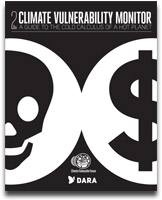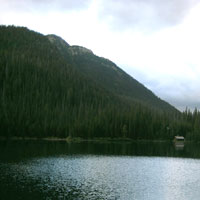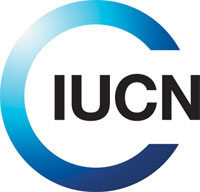
News |
- National Energy Board Supports Whistleblower
- Google Tops Cool IT List
- BiPole III Hearings Start in Winnipeg, Now on Tour
- Study Predicts Trillions Lost From Climate Change
- Manitoba To Ban Cosmetic Pesticide Use
- Court Throws Out Climate Protesters' Charges
- Revised Taseko EIS Submitted
- EU to Decrease Biofuel Mandate
- IUCN Supports Indigenous Peoples Membership
- Quebec, Canada To Close Nuclear Plant
- Conservation Library Closure Shocks Community
- Tankers too Risky for B.C. Coast: Independent Report
| National Energy Board Supports Whistleblower | 19 October 12 |

Voskes' complaints to the NEB include his concerns about the competency of some pipeline inspectors and TransCanada's lack of compliance with welding regulations set by the NEB. An audit by the NEB of TransCanada Pipeline practices and adherence to regulations, confirmed Vokses' allegations. The NEB has announced a further audit of TransCanada's inspection and engineering proceadures. "There is an inherent conflict when a prime contractor does his own inspections," Voskes said in an interview, "especially when the project involves gas pipelines under high pressure because the consequence could be greater since it relates to public safety." View October 17, 2012 CBC News articleView October 17, 2012 Desmog Blog article View October 15, 2012 Toronto Sun article View October 13, 2012 Calgary Herald article View October 12, 2012 CBC News article |
|
 Print version Print version |
Top |
| Google Tops Cool IT List | 5 October 12 |

The Greenpeace Energy [R]evolution campaign goal is for renewables to meet 95% of the world's energy needs by the year 2050. With IT companies using larger and larger amounts of energy to support social media and network infrastructure, it is sound logic to address the energy usage of these companies the way Greenpeace does with it's Cool IT List. Google recently purchased forty-eight megawatts of wind generated electricity to power its Oklahoma data centre. Apple plans to build a massive solar farm to supply energy to its Maiden, North Carolina data centre. Facebook's stating it will prioritize renewables whenever possible. These trends can only promote a shift to renewables driving the future global economy. View Greenpeace Campaign: Energy [R]evolution: A Sustainable Energy Outlook for the USAView September 26, 2012 Greenpeace blog post View April 17, 2012 Bloomberg article View February 9, 2012 Smart Planet article |
|
 Print version Print version |
Top |
| BiPole III Hearings Start in Winnipeg, Now on Tour | 5 October 12 |

Manitoba Wildlands is an unfunded participant in these hearings, and is posting transcripts, presentations, and other materials on its website. Bipole III products available from Manitoba Wildlands include an expanded outline of the initial Environmental Impact Statement, and a chronological chart that provides CEC proceedings information. Week one of the hearings included presentations by Manitoba Hydro staff concerning aspects of the 1400 km direct current bi pole project. The transmission system that would run from a converter station in northern Manitoba near sites for two new intended generation stations to another converter station east of Winnipeg. Manitobans can register to speak at the hearings, including at tour locations, by contacting the CEC through their website or by phone. Written submissions are also accepted until November 1, 2012. Consumers Association of Manitoba and The Green Action Centre are holding a workshop in Dauphin Manitoba, October 11, 2012, to assist Manitobans who intend to make a presentation at the hearings. The workshop will be held at the Indian and Metis Friendship Centre. Links to CEC tour information, workshops, and CEC materials provided below. Several presentations from week one are still not public. View Clean Environment Commission (CEC) Bipole III pageView CEC Hearings Schedule for Bipole III View CEC Presenter's Application form View Manitoba Wildlands Bipole III CEC Hearings page View CEC and Green Action Centre workshop for presenters in Dauphin, Manitoba |
|
 Print version Print version |
Top |
| Study Predicts Trillions Lost From Climate Change | 3 October 12 |

"A combined climate-carbon crisis is estimated to claim 100 million lives between now and the end of the next decade," the report said. Commissioned by the world’s most vulnerable countries and backed by high-level and technical panels, the new Monitor estimates human and economic impacts of climate change and the carbon economy for 184 countries in 2010 and 2030, across 34 indicators. The Climate Vulnerability Monitor 2nd Edition indicates climate change has already held back global development and that inaction is a leading global cause of death. View 2012 DARA and the Climate Vulnerable Forum reportView DARA and the Climate Vulnerable Forum News Release View September 26, 2012 Common Dreams article View September 19, 2012 The Guardian article View September 14, 2012 The Guardian article View July 24, 2012 The Guardian article |
|
 Print version Print version |
Top |
| Manitoba To Ban Cosmetic Pesticide Use | 3 October 12 |

On June 21, 2012, Manitoba Conservation release a discussion paper "Play It Safe" that proposed implementing a ban on the cosmetic use of pesticides in Manitoba. The public was given until October 1, 2012 to provide feedback. Six other provinces, representing over two thirds of Canada's population, already have similar regulations limiting the use of pesticides for cosmetic purposes. The ban would only apply to pesticides used to address cosmetic purposes. Pesticide use for health issues, invasive species, or agricultural production would still be allowed. "The cosmetic use of pesticides may cause harm and provides no health benefit. The current body of evidence suggests a connection between pesticides and cancer," states the Canadian Cancer Society. "Cosmetic pesticide use is a public health issue, particularly for children. Pesticides also can have long-term health effects, resulting both from acute poisonings and from chronic exposure," said Dr. Debbie Pollock, M.D., a member of the Canadian Association of Physicians for the Environment. "The consultation period right now is to look to see how we can reconcile the different views; how we can bring in some protection for Manitoba children, pregnant moms, and do it in a way that's effective," said Manitoba Conservation and Water Stewardship Minister Gord Mackintosh. View October 1, 2012 Winnipeg Free Press commentaryView September 25, 2012 Winnipeg Free Press coverage View September 24, 2012 Green Action Centre coverage View September 24, 2012 CBC News coverage View September 24, 2012 Canadian Press coverage View September 24, 2012 CTV News coverage View September 23, 2012 Cosmetic Pesticide Ban Manitoba press release Sign Change.org Petition Minister of Conservation - Government of Manitoba: Implement comprehensive cosmetic pesticide ban View June 21, 2012 Government of Manitoba Play It Safe discussion paper (PDF) View July 17, 2012 Canadian Cancer Society Our position on cosmetic use of pesticides webpage Source:
Cosmetic Pesticide Ban Manitoba, Government of Manitoba
|
|
 Print version Print version |
Top |
| Court Throws Out Climate Protesters' Charges | 3 October 12 |

Source: Julie Oliver / Ottawa Citizen
Graham Saul, 41, former executive director of Climate Action Network Canada, welcomes the court decision by Justice Paulina Brecher saying it protected the "right and responsibility" to protest "the reckless climate change and energy policies of the Harper government. It's a vindication of people's right to use public spaces for a protest because that's what they are for," said Saul. He also said the court decision was a fitting way to celebrate the birthday of the late Mahatma Gandhi, the civil rights leader from India who was known for promoting justice through peaceful action. Mark Ertel, a lawyer representing the group of 13, explained that the court dismissed the fines against his clients since an RCMP officer who testified "had no real evidence" to prove that any of the protesters had committed an offence. The 13 defendants refused to pay the $ 65 fine. "This was not a radical act. What is radical is actively promoting policies that tear at the life-support systems of the planet and put people's lives in danger," said Liz Bernstein, whose charges were also tossed. This trial ends three weeks before thousands of people are scheduled to gather in an act of peaceful civil disobedience in Victoria, B.C. (see DefendOurCoast.ca) View October 3, 2012 Ottawa Citizen articleView October 2, 2012 Dirty Oil Sands article View September 30, 2012 Times Colonist article View September 30, 2012 Canada.com article |
|
 Print version Print version |
Top |
| Revised Taseko EIS Submitted | 21 September 12 |
 Taseko Mines Ltd. announced it has formally submitted an environmental impact statement (EIS) September 20, 2012 for the revised Prosperity project in B.C. The EIS materials are not yet publicly available through the Canadian Environmental Assessment Agency (CEAA) online registry.
Taseko Mines Ltd. announced it has formally submitted an environmental impact statement (EIS) September 20, 2012 for the revised Prosperity project in B.C. The EIS materials are not yet publicly available through the Canadian Environmental Assessment Agency (CEAA) online registry.Taseko is looking to build an open pit gold-copper mine approximately 125 kilometres southwest of Williams Lake, B.C. The previously proposed mine was approved by the B.C. government, but then rejected after a federal government environmental review in 2010. The previous plan would have drained Fish Lake and put a tailings storage facility nearby. The nearby Tsilhqot'in First Nation Government has strongly opposed Taseko's gold and copper mine project, saying the development will kill Fish Lake, preventing access to a place of spiritual importance. The company was ordered to rewrite the environmental impact statement earlier this year after the Canadian Environmental Assessment Agency concluded a draft was riddled with gaps, deficiencies and missing information. The revised proposal retains Fish Lake and shifts a tailings facility 2 kilometres upstream. When the pit is at its biggest, the edge would be about 500 metres from Fish Lake. Ottawa announced that the revised mine plan would be assessed by a federal review panel in November 2011. The panel issued a call for submissions for public comments, and applications for interested party status during the hearings on September 14, 2012. Comments and application are due by September 28, 2012. A date for the hearings has not yet been set. View CEAA New Prosperity Gold-Copper Mine Project Reference #63928View September 21, 2012 CBC/Canadian Press coverage View September 21, 2012 Vancouver Sun coverage View September 20, 2012 Globe and Mail coverage View September 20, 2012 Taseko Mines press release View September 14, 2012 CEAA Invitation for Public Comments on Public Hearing Procedures, Comment on the Confidentiality Procedures and Applications for Interested Party Status View September 13, 2012 MiningWatch Canada press release View Manitoba Wildlands coverage:
Sources:
CBC/Canadian Press
|
|
 Print version Print version |
Top |
| EU to Decrease Biofuel Mandate | 21 September 12 |
 European Union (EU) Energy Commissioner Günther Oettinger, and Climate Commissioner Connie Hedegaard announced September 17, 2012 the European Commission (EC) is planning to limit use of crop-based biofuel to five percent. Existing rules require at least 10 percent of the EU's transport energy must come from renewable sources by 2020, primarily through biofuels derived from wheat, soy or rapeseed.
European Union (EU) Energy Commissioner Günther Oettinger, and Climate Commissioner Connie Hedegaard announced September 17, 2012 the European Commission (EC) is planning to limit use of crop-based biofuel to five percent. Existing rules require at least 10 percent of the EU's transport energy must come from renewable sources by 2020, primarily through biofuels derived from wheat, soy or rapeseed.The Commission plan needs to be approved by member governments and the European Parliament before becoming law, which could take up to two years. The announcement came shortly after international NGO Oxfam released The Hunger Grains, which demonstrates that Europe's hunger for biofuels is pushing up global food prices and driving people off their land, resulting in deeper hunger and malnutrition in poor countries. "In 2008 biofuels accounted for 3.5 percent of all transport fuels in the EU, that same year, the land that was required to grow crops for those biofuels could have fed 127 million people," said Ruth Kelly, Oxfam's economic policy advisor, and author of Oxfam's new report. Data gathered by Oxfam shows land acquired for biofuels production and export in the Philippines could produce up to 2.4 million metric tonnes of rice, enough to make the country self-sufficient in rice production. European Energy Commissioner Oettinger recognised that current EU policy lead to "unfavourable developments such as the tearing down of rainforest to produce biofuel." "It is wrong to believe that we are pushing food-based biofuels, our clear preference is biofuels produced from non-food feedstocks, like waste or agricultural residues such as straw," wrote Oettinger and Climate Commissioner Hedegaard in a joint statement. "I'm happy the EC is finally recognising the fact that the use of food-crops for fuel is problematic," says Ruth Kelly, adding: "EU governments and the European Commission must resist the backlash from industry and farming lobbies that have grown fat on the massive subsidies and tax exemptions while poor people go hungry and consumers' money get wasted." View September 17, 2012 Oxfam Report The Hunger GrainsView September 20, 2012 Reuters coverage View September 19, 2012 Inter Press Service coverage View September 17, 2012 Oxfam Press Release View September 17, 2012 Guardian coverage View September 17, 2012 Reuters coverage View September 11, 2012 Oxfam Press Release Sources:
Oxfam, Reuters, Inter-Press Service
|
|
 Print version Print version |
Top |
| IUCN Supports Indigenous Peoples Membership | 21 September 12 |
 The International Union for the Conservation of Nature (IUCN) unanimously passed a motion to establish an Indigenous Peoples' Organization membership and voting category at the 5th World Conservation Congress on the South Korean island of Jeju held September 6-15, 2012.
The International Union for the Conservation of Nature (IUCN) unanimously passed a motion to establish an Indigenous Peoples' Organization membership and voting category at the 5th World Conservation Congress on the South Korean island of Jeju held September 6-15, 2012."The passage of this motion is an important step in acknowledging the role indigenous peoples play in conservation. This is a victory for the world's Indigenous cultures and for our unique knowledge of the natural world," said Inuit Tapiriit Kanatami President Terry Audla. The motion was co-sponsored by Inuit Tapiriit Kanatami (Canada's National Inuit Organization), Inuit Circumpolar Council (a multinational non-governmental Indigenous Peoples' Organization representing the 160,000 Inuit in the arctic areas of Canada, U.S.A., Denmark and Russia), along with a contingent of South American and African organizations. "Indigenous peoples have historically been grossly underrepresented in world forums such as these. Governments and conservation groups now have to make room for us at the table, in this new climate of inclusion," said Vernon Amos, of Sachs Harbour, a hamlet located in the Inuvik Region of the Northwest Territories, Canada. IUCN is the world's largest environmental network. The World Conservation Congress, held every four years, is its highest decision-making body. View September 14, 2012 Motion to Establish an Indigenous Peoples' Organization (IPO) membership and voting category in IUCN (PDF)View September 14, 2012 Nunatsiaq Online coverage View Inuit Tapiriit Kanatami IUCN World Conservation Congress coverage View International Union for the Conservation of Nature (IUCN) World Conservation Congress website View IUCN/Conservation International/WWF powerpoint presentation (PDF) Source:
Nunatsiaq Online
|
|
 Print version Print version |
Top |
| Quebec, Canada To Close Nuclear Plant | 15 September 12 |
 Quebec's newly elected Parti Quebecois (PQ) government intends to keep its election promise to close Gentilly-2, Quebec's only nuclear power plant, located in Bécancour, Que., across the St. Lawrence River from Trois-Rivières.
Quebec's newly elected Parti Quebecois (PQ) government intends to keep its election promise to close Gentilly-2, Quebec's only nuclear power plant, located in Bécancour, Que., across the St. Lawrence River from Trois-Rivières.A spokesperson for incoming Premier Pauline Marois, gave the confirmation after a coalition of activists opposing the plant demanded assurances from the premier-designate. The activists spoke as a new film, "Gentilly Or Not To Be," opened. It questions the safety of having the nuclear plant, including increased cancer risk, for those living close by. The government of outgoing Premier Jean Charest decided in 2008 to rebuild the plant at a cost of about $2 billion but stopped work after the Fukushima disaster in Japan in 2011. The license for the plant ends this year, and details of decommissioning still need to be resolved. View September 12, 2012 Montreal Gazette coverageView September 12, 2012 Canadian Press coverage View September 11, 2012 CBC coverage View September 14, 2012 Common Dreams article Sources:
CBC, Canadian Press
|
|
 Print version Print version |
Top |
| Conservation Library Closure Shocks Community | 11 September 12 |
 Manitoba Wildlands can now confirm Manitoba Conservation and Water Stewardship will be closing the library and public registry at 123 Main Street, in downtown Winnipeg, at the end of the calendar year. This public registry is the primary registry under the Manitoba Environment Act.
Manitoba Wildlands can now confirm Manitoba Conservation and Water Stewardship will be closing the library and public registry at 123 Main Street, in downtown Winnipeg, at the end of the calendar year. This public registry is the primary registry under the Manitoba Environment Act.Little discussion or planning took place prior to this decision. Valuation of: services provided, access to journals and publications, or doing a survey of users did not receive consideratioin. Valuation of services would show a significant multiplier on actual annual costs. Arrangements with the Canadian Council of Ministers of the Environment, and with Environment Canada to share resources and publications are up in the air. Arrangements with the Manitoba Legislative Library are also up in the air. The library is repository for research and technical reports, plus government publications reflecting public policy, and technical knowledge with respect to species, lands, waters, crown land designations, and all environmental licences issued in Manitoba. Students, researchers, journalists, consultants, and affected communities use the library. Gaile Whelan Enns commented: "This decision is contrary to the public interest. A small budgetary savings seems to be the basis for deconstruction of the library, and possibly the public registry. Manitoba needs a virtual library and registry like Ontario's Environmental Bill of Rights registry. No plan was in place before this decision. We would not be surprised if the materials are thrown out as that has happened with this department before when offices were being moved around." View Manitoba Conservation Library Services pageView September 4, 2012 Manitoba Government memo (DOCX) |
|
 Print version Print version |
Top |
| Tankers too Risky for B.C. Coast: Independent Report | 11 September 12 |
 The Enbridge Northern Gateway pipeline proposal to ship oil sands bitumen ('dilbit') from a Kitimat terminal along the B.C. coast carries an unacceptable risk of a significant spill. Three professional engineers arrived at this conclusion in their independent report.
The Enbridge Northern Gateway pipeline proposal to ship oil sands bitumen ('dilbit') from a Kitimat terminal along the B.C. coast carries an unacceptable risk of a significant spill. Three professional engineers arrived at this conclusion in their independent report.The engineers find risks of an eventual spill, during the expected 50-year lifetime of the project, to be too high, "and the unrefined bitumen too toxic and hard to clean up to be acceptable for a pristine coastline." "In fact a 200-year return period (as Enbridge identifies) means there is a 22 % probability there will be at least one spill during the 50-year operational lifetime for the project," the engineers explain. "That's much higher than standards normally accepted in the design of civil infrastructure with high consequences in the case of failure." "When you add in the liquefied natural gas tanker traffic projects already under construction, approved or awaiting approval for the port of Kitimat (432 tankers per year), the return period of an incident (tanker collisions or groundings) decreased to 38 years, or a 73-per-cent chance of at least one such incident during a 50-year operational lifetime." The analysis concludes: "This is clearly an unacceptable risk." For the purposes of this engineering analysis a spill is defined as greater than 5,000 cubic meters, about one seventh the size of the Valdez spill. View September 1, 2012 The Vancouver Sun articleView September 11, 2012 Campbell River Mirror article View September 10, 2012 Toronto Star article View August 15, 2012 The Province coverage View July 30, 2012 CBC News article |
|
 Print version Print version |
Top |


 RSS Feeds:
RSS Feeds: